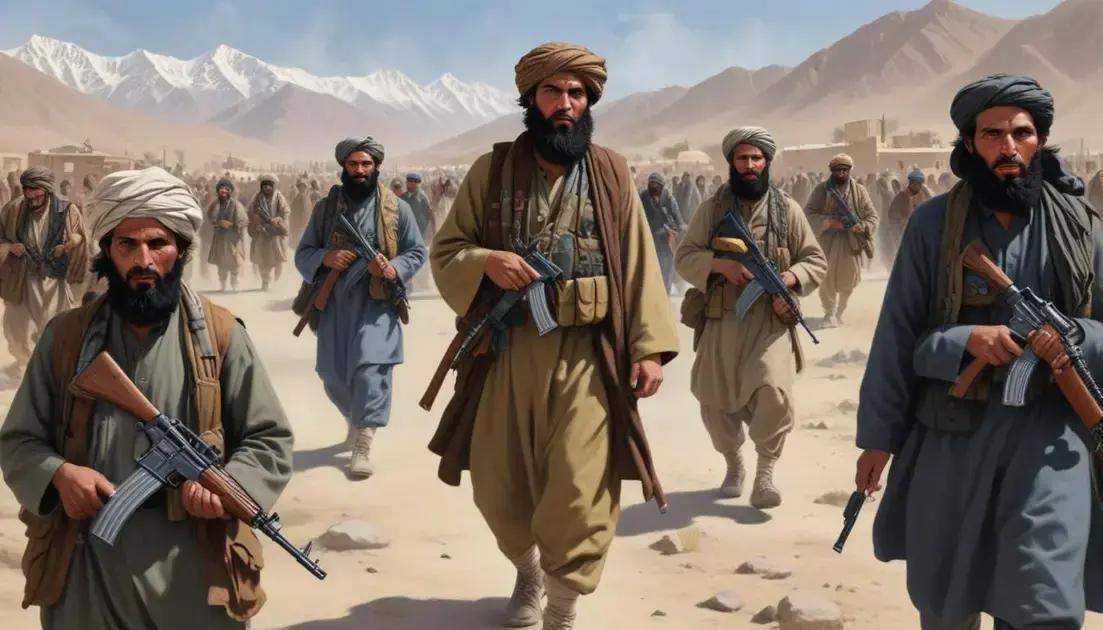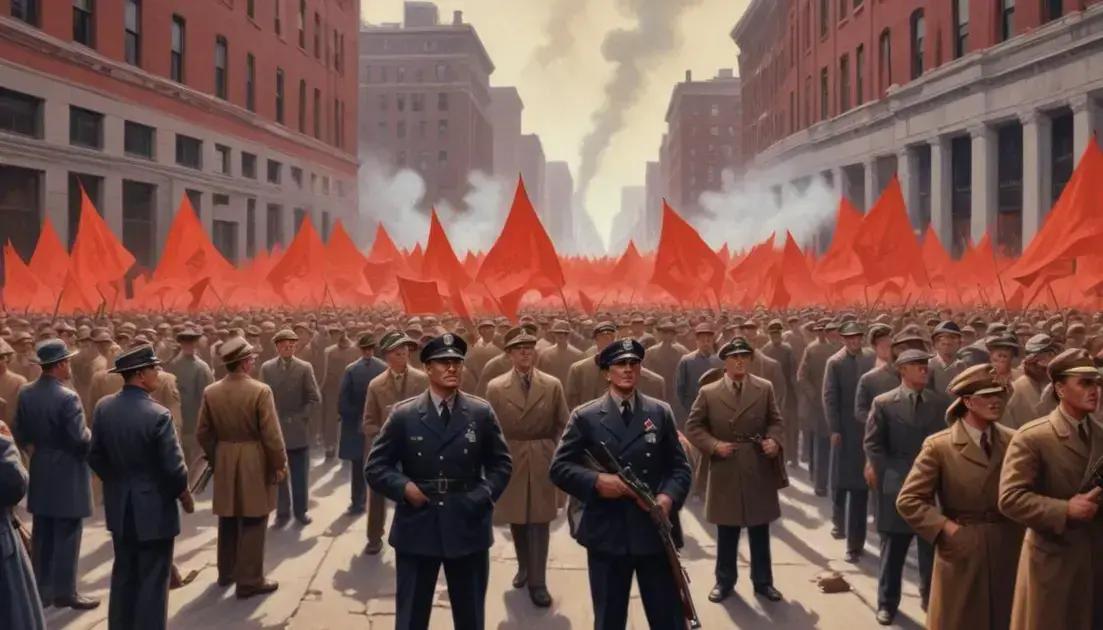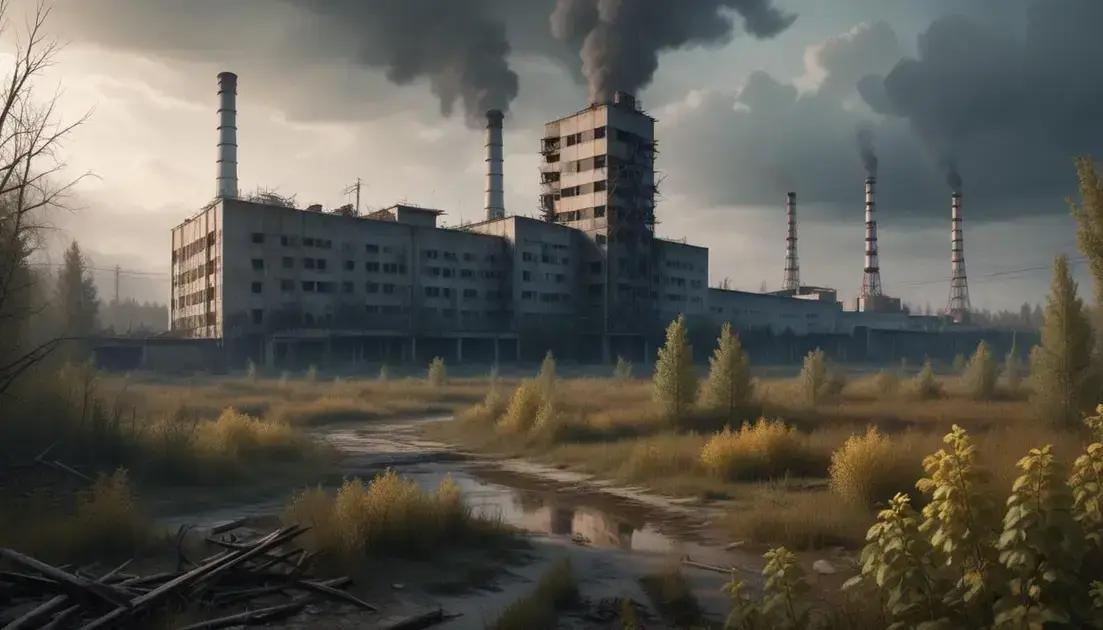
The Taliban: the ally who became an enemy
The Taliban has transformed significantly from an ally during the Cold War to an adversary in recent years, raising global concerns about human rights and stability in Afghanistan. Their strict rule has resulted in widespread criticism, especially regarding women’s rights and humanitarian crises. The international response has been cautious, balancing the need for engagement with the Taliban against the risks of legitimizing their government. Overall, the situation in Afghanistan remains complex, with ongoing challenges regarding security, economic stability, and human rights.
Taliban – once an ally, now a formidable foe. How did this group evolve into a major global player? Let’s explore the unfolding story that shaped the modern world.
Historical context of the Taliban’s creation
The Taliban was formed in the early 1990s in Afghanistan. This came after years of war and chaos. Many young men came together looking for peace and order. They wanted to rebuild their country, which had been hurt by fighting.
At first, people saw the Taliban as heroes. They promised to bring stability and enforce strict Islamic laws. They quickly took control of large parts of the country. However, this control came with harsh rules. Suffering increased for those who did not follow their beliefs.
During the Cold War, Afghanistan was a battleground for influence between the US and the Soviet Union. The US saw the Soviets as a threat and supported Afghan fighters. This support helped set the stage for groups like the Taliban.
As the Soviets withdrew, many fighters wanted to control the country. The Taliban rose from these groups. They managed to fill a power vacuum left by the falling government.
By the late 1990s, the Taliban had gained power and established a strict regime. This led to international outcry, but they remained in control until the US invasion in 2001. This marked a significant turn in world events that many still feel today.
The Taliban’s influence during the Cold War
The Taliban greatly influenced Afghanistan during the Cold War. This was a time of political struggle and conflict. After the Soviet invasion in 1979, many groups fought against the Soviets. The Taliban was one of these groups, emerging from religious schools called madrasas.
The US supported Afghan fighters, providing money and weapons. This support helped create a strong resistance against the Soviet army. The Taliban gained experience and grew in numbers.
Many young men joined the Taliban, believing they could restore peace. They promised to bring order to the chaos of war. The Taliban’s strict interpretation of Islamic law attracted followers looking for stability.
As the Soviets withdrew, the Taliban took advantage of the situation. They filled the power void left by the falling government. By the mid-1990s, they took control of many regions in Afghanistan, enforcing their harsh rules.
The Cold War was crucial in shaping the Taliban’s rise. They transformed from a group of fighters to a major political force. Their connection to global politics played a key role in their power surge.
Transition from ally to adversary
The Taliban’s transition from ally to adversary was dramatic and complex. Initially, they were seen as allies during the fight against the Soviet Union. The group gained support as they promised to bring peace and stability after years of war.
However, as the Taliban took control, their strict rules raised concerns. They enforced harsh laws that limited personal freedoms. This led to dissatisfaction among the people. Support changed quickly as fear replaced hope.
By the late 1990s, the Taliban’s regime faced heavy criticism from the international community. Reports of human rights abuses shocked many observers. This included violence against women and bans on basic rights.
The September 11 attacks in 2001 changed everything. The Taliban’s refusal to hand over Osama bin Laden made them targets in the US-led invasion. They shifted from a local power to a global enemy.
This shift transformed how the world viewed the Taliban. They were no longer an ally but a symbol of extremism. The Afghan people watched as their heroes became foes, impacting the nation’s future.
Contemporary challenges posed by the Taliban
The Taliban poses many contemporary challenges both in Afghanistan and beyond. After taking control in 2021, they faced harsh criticism. Many people wonder how they would lead the country.
One of the biggest issues is human rights. The Taliban’s strict rules limit freedoms. Women and girls have lost many rights. They can’t attend school or work in many jobs. This is alarming for many around the world.
Another challenge is security. The Taliban must manage threats from terrorist groups. ISIS-K, a rival group, has carried out attacks. This has created fear and instability in Afghan cities.
Economically, Afghanistan struggles under Taliban rule. The international community has limited support due to their human rights record. Severe poverty affects daily life. Basic services like health care and education are in crisis.
The Taliban’s foreign relations are also tense. Many countries are cautious about recognizing their government. This affects trade and international help, making it hard for Afghanistan to recover.
Overall, the challenges posed by the Taliban are vast. They impact the lives of everyday Afghans while shaping the future of the nation.
Global response to the Taliban’s resurgence
The global response to the Taliban’s resurgence has been mixed and complicated. Many countries condemned the Taliban’s return to power in 2021. Concerns about human rights violations quickly arose, especially regarding women and girls.
Many nations responded by cutting aid to Afghanistan. This left many people without basic needs. Humanitarian groups tried to help, but funding became scarce. The situation led to severe poverty and a humanitarian crisis.
Some countries remain cautious about engaging with the Taliban government. They fear support could legitimize the regime. Others feel it’s necessary to work with them to address security threats, like terrorism.
International organizations, like the UN, called for dialogue. They aimed to find a way to ensure basic rights for Afghans while dealing with the Taliban. The challenges are huge, and progress has been slow.
Countries like Pakistan and China have shown interest in forming ties with the Taliban. They hope to stabilize the region and promote trade, but this raises concerns among Western nations.
Overall, the global response reflects deep divides in politics and priorities. Many hope for a future that respects human rights in Afghanistan.
Conclusion
In conclusion, the rise of the Taliban has brought significant challenges to Afghanistan and the world. Their harsh rule has raised concerns about human rights, especially for women and girls. The global community’s response has shown the need for careful engagement and support for the Afghan people.
While some countries seek to establish ties with the Taliban, the risks of legitimizing their government remain high. At the same time, the humanitarian crisis in Afghanistan requires urgent attention. Ensuring that basic rights are respected is crucial for a brighter future.
Through international dialogue and cooperation, there is hope that positive change can occur in Afghanistan. The path ahead is tough, but staying focused on human rights and stability is essential for the well-being of all Afghans.


